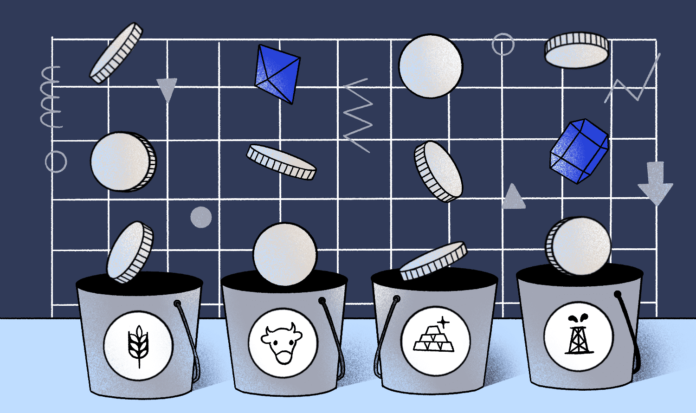The financial innovations in the world have led to the development of different trading styles in the Australian market. Off late, commodity buying on online platforms has emerged as a viable option for traders as an alternative to the capital investment market. Platforms like the Metatrader have made the process from account creation to trading a smooth ordeal. Unlike stocks and shares, commodity buying involves futures, options and contracts which benefit traders. Their low volatility, protection against geopolitical events, diversification and inflation ensure that traders beat the market losses. The article looks into how that is.
Impactful Diversification of Portfolio
As commodities are the raw materials that factories use to produce their final products, commodity futures negatively correlate with the stock market. While the rise in commodity prices impacts the shareholders and the value of the company stock, it positively increases their investment value in commodity futures and options. The stocks perform well when the inflation rate is slowing or stable, and the commodities do better during high inflation times. While the value of commodities depends on factors like geopolitical stability, weather conditions and economic policies, stocks and bonds do not respond to those factors. This negative correlation makes trading commodities an enticing option for traders.
Hedging Against Inflation
The rise in demand for products and services results in an inflation of their prices. It has a direct impact on the cost of raw materials or commodities.
Steep inflation raises the interest rates of commodities, impacting the borrowing cost of businesses and their net income. As the company generates a lower revenue, the value of the shares also plummets. In such environments, the prices of the shares and stocks fall while the process of the commodities necessary for producing the finished products rise. Therefore, the investors who have commodity assets can protect their capital from the drastic effects of inflation. Having two trade investments that have opposite impacts on market fluctuations, traders can be sure of minimizing their losses. For example, when the oil prices increase, the stock prices of the car manufacturing companies increase. However, traders who have invested in oil trading companies can benefit from the situation and incur gains on the other side.
Protection Against Drastic Geopolitical Events
One of the significant impacts of adverse geopolitical events like wars, conflicts and riots like the Ukraine war is the disruption of the supply chain. The events lead to difficulties in procurement and transportation of goods and raw materials to factories, causing a mismatch in the demand-supply balance. The price of the commodities rises exponentially during such situations. While the stock prices fall due to this drastic imbalance, the commodity futures benefit significantly as their value increases. Traders can thus maintain their losses by trading commodities as a part of their investment portfolio.
Higher Degree of Leverage
The minimum futures value margin is much lower than the stock margins. Commodity buying has futures and options investments that provide appreciably high leverage for the traders as they can pay the upfront value as low as 5-10%. Any small movie in the commodity prices can therefore lead to exponential gains. Traders benefit from higher returns due to the leverage.
Better Transparency
Australia mainly exports iron ore, gold, coal and petroleum, raking in over AUD 145 billion. Unlike the traditional systems of the past that had a closed market, the presence of regulatory bodies like the Australian Securities and Investments Commission ensures that the market integrity remains intact. Additionally, electronic trading platforms like Metatrader enable retail traders to participate in the process without the intervention of a mediator, eliminating the risk of manipulation.








